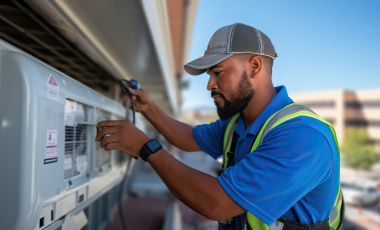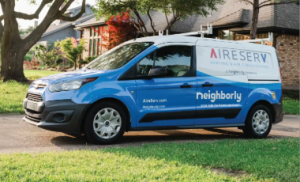Introduction to Common HVAC Problems
Heating, ventilation, and air conditioning (HVAC) systems are essential for maintaining a comfortable indoor environment. However, like any complex machinery, HVAC systems can encounter problems that disrupt their functionality. From faulty thermostats to clogged filters, these issues can cause discomfort and even compromise the air quality in your home. In this article, Bay Area HVAC experts will share tips for resolving common HVAC problems, helping you troubleshoot and potentially fix issues on your own.
Tips for Troubleshooting HVAC Issues
1. Check the thermostat: A malfunctioning thermostat is a common culprit behind HVAC problems. Ensure that it is set to the desired temperature and mode (heating or cooling). If the thermostat is unresponsive or displaying incorrect readings, replace the batteries or consider upgrading to a programmable thermostat for better control and energy efficiency.
2. Inspect the air filters: Dirty or clogged air filters can restrict airflow, reducing the efficiency of your HVAC system. Regularly inspect and replace filters every 1-3 months, depending on usage. This simple maintenance task can improve indoor air quality and prevent strain on the system.
3. Clean the condenser unit: The condenser unit, located outside your home, can accumulate dirt, leaves, and debris over time. This buildup can obstruct airflow and hinder the cooling process. Gently clean the unit using a hose or consult a professional for a thorough cleaning.
4. Check circuit breakers and power supply: If your HVAC system is not turning on, check the circuit breakers to ensure they haven’t tripped. Additionally, inspect the power supply and make sure it is connected securely. If the problem persists, it may indicate a more significant electrical issue that requires professional attention.
Expert Advice for DIY HVAC Repairs
While some HVAC issues can be resolved through simple troubleshooting, it’s important to know your limits. Attempting complex repairs without proper knowledge and experience can lead to further damage or personal injury. However, there are a few DIY repairs that homeowners can safely undertake:
1. Cleaning vents and ducts: Over time, vents and ducts can accumulate dust, mold, and other contaminants, affecting indoor air quality. Regularly clean vents and ducts using a vacuum or a brush attachment. However, for a thorough cleaning, it is advisable to hire a professional HVAC technician.
2. Lubricating moving parts: HVAC systems have various moving parts that require lubrication to reduce friction and ensure smooth operation. Consult the manufacturer’s manual to identify the parts that need lubrication and use the recommended lubricant. This simple maintenance task can extend the lifespan of your HVAC system.
3. Clearing debris around the outdoor unit: Regularly inspect the area around the outdoor unit and remove any debris, such as leaves, branches, or grass clippings. This will prevent airflow obstruction and potential damage to the unit.
When to Call a Professional HVAC Technician
While DIY repairs can be cost-effective and satisfying, there are instances when it is best to call a professional HVAC technician:
1. Refrigerant leaks: HVAC systems rely on refrigerant to cool the air. If you suspect a refrigerant leak, it is crucial to contact a professional immediately. Refrigerant leaks not only compromise the system’s efficiency but can also be harmful to the environment and your health.
2. Electrical issues: HVAC systems involve complex electrical components. If you encounter electrical problems, such as faulty wiring or blown fuses, it is essential to seek professional help. Attempting to fix electrical issues without proper knowledge can lead to serious accidents or damage to the system.
3. Unusual noises or smells: Strange noises or odors coming from your HVAC system can indicate underlying issues. These could range from loose parts to mold growth. A professional technician can accurately diagnose the problem and provide the necessary repairs or maintenance.
In conclusion, understanding common HVAC problems and troubleshooting techniques can help homeowners resolve minor issues and maintain the efficiency of their systems. However, it is crucial to know when to call a professional HVAC technician to ensure safety and prevent further damage. By following these tips and seeking expert advice when needed, you can keep your HVAC system running smoothly and enjoy a comfortable indoor environment year-round.


